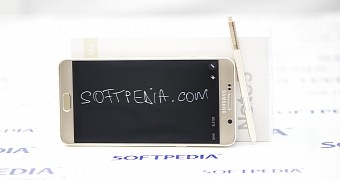Although we're still a few months away from Google I/O conference where the search giant is expected to unveil the next version of Android, the first details about the new features it might bring have already started to pop up.
It's common knowledge that Google is working with OEM partners for new Android OS versions and makes sure they have access to the newest APIs, especially those that add new features to the operating system.
So, it's not unusual for a handset maker like Samsung to have inside information about some of the features that the next version of Android will include.
Since the upcoming version of Android doesn't have an official name, we will refer to it as Android N. One of the big changes in Android N will be better stock stylus support, which will mostly favor Samsung, one of the few companies that still launches this type of products.
The folks over at XDA have just spotted something interesting on Samsung's developer page. The South Korean company listed Look APIs, which contain S Pen, features that “will be deprecated in Android N.”
Devs will be able to create new features without using Samsung's Look API
According to this list, there will be three S Pen-related features that will be deprecated in Android N: AirButton, SmartClip, and WritingBuddy. The fourth that's been listed, Edge Immersive Mode, will be deprecated as well in Android N.
As some of you might have probably noticed by now, these functions are a large part of Samsung Note's S-Pen unique features, so it doesn't make sense for the South Korean company to drop support for them unless they plan to stop producing Galaxy Note phablets.
The only logical explanation would be that Google plans to add these APIs directly into Android N, so developers will no longer need to use Samsung's Look API to create apps or new features for S Pen.
This isn't the first time that Google is rumored to bring better stylus support in Android N, but it's the first time we have some evidence to support it.

 14 DAY TRIAL //
14 DAY TRIAL //